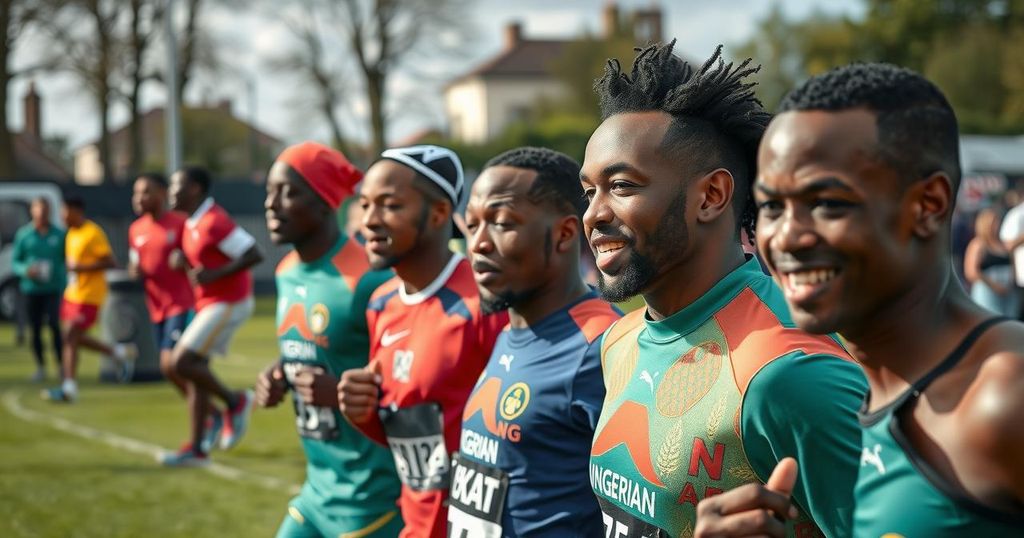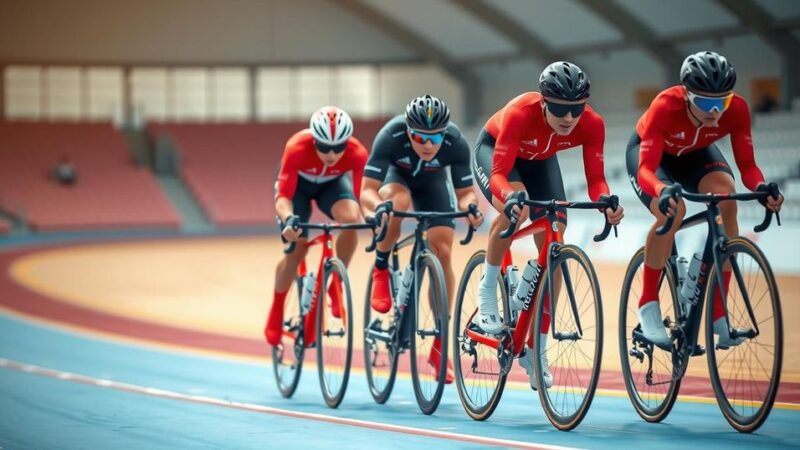The Ozo running club, formed by Nigerian Igbos in London, fosters cultural connections and community among its 300+ members. Established to celebrate Igbo heritage, the club has become a space for socializing, fitness, and cultural pride, amplifying Igbo representation amidst challenges of cultural assimilation. The founders invite individuals of all backgrounds to participate, ensuring inclusivity while strengthening bonds within the Igbo community.
On brisk Saturday mornings at Hyde Park in London, a noteworthy congregation of runners, predominantly of Igbo descent, convenes under the banner of the Ozo running club. Founded by Chibueze Odoemene, Emeka Atumonyogo, and Chigo Ogbonna, this club aims to foster connections among young Igbo individuals and celebrate their rich cultural heritage. With over 300 members in a span of three months, the Ozo club reflects the growing trend of social running clubs worldwide, as evidenced by a 59% increase in global running club participation noted by the Strava running app.
The activities of the Ozo running club extend beyond physical fitness; they aspire to cultivate a sense of community, akin to family, among participants. As members gather, they perform a traditional Igbo call-and-response chant, facilitating a profound sense of unity and cultural pride. Mr. Odoemene emphasizes, “The chant is used as a call of unity, community, and love among all Igbo peoples.” The founders of the club welcome diversity, encouraging participation from individuals of various backgrounds, while highlighting the importance of the Igbo cultural narrative.
At the heart of the Ozo club’s initiative lies a response to the evolving state of the Igbo community in the diaspora, where many express a longing for connection with their cultural roots. Despite being one of Nigeria’s largest ethnic groups, the Igbos face challenges in cultural preservation, as noted in a UNESCO prediction of impending language extinction. Yet, the number of Igbo individuals in the UK has steadily increased, indicating a retained interest in cultural identity.
Participants like Francesca Ngozi Ezennolim and Jennifer Iwuamadi share sentiments about the importance of forming friendships within the Igbo community, aiming to fill the void they feel amidst their diverse Nigerian connections. The club serves as an indispensable platform for socializing, networking, and embracing Igbo heritage.
Moreover, the club seeks to counteract stereotypes that overshadow the Igbo experience; the rich cultural contributions of the Igbos often reside in the shadows of their Yoruba counterparts. The founders believe it is crucial to amplify Igbo representation and challenge the prevailing narratives about Nigerian identity.
In addition to running, the Ozo club organizes various social gatherings, including karaoke and dodgeball sessions, fostering community spirit. As the weekly runs conclude, members reinforce their bonds and look forward to future encounters, solidifying their commitment to cultural pride and community ties. The Ozo running club exemplifies how sport can be a conduit for personal connection, cultural celebration, and community resilience, nurturing relationships that honor their heritage.
The emergence of the Ozo running club marks a significant cultural revival among the Igbo community in London, an initiative driven by the desire to celebrate and preserve their heritage while fostering communal ties. This club serves as a vital space for young Igbos, particularly amidst concerns about cultural dilution and language extinction as predicted by UNESCO. With a growing number of Igbos in the UK, the running club not only emphasizes physical activity but also offers a much-needed platform for cultural engagement and mutual support among members, addressing the perceived marginalization of Igbo identity in broader narratives about Nigeria.
The Ozo running club epitomizes a successful union of cultural pride and community building among Igbo individuals in London. By providing a supportive environment for connection, the club reinforces the importance of cultural identity in a diverse landscape. As they promote both health and heritage, members are not only improving their fitness but also forging lasting relationships rooted in shared history and values. This effort underscores the essential role of community engagement in preserving and celebrating the rich tapestry of Igbo culture.
Original Source: www.bbc.com






